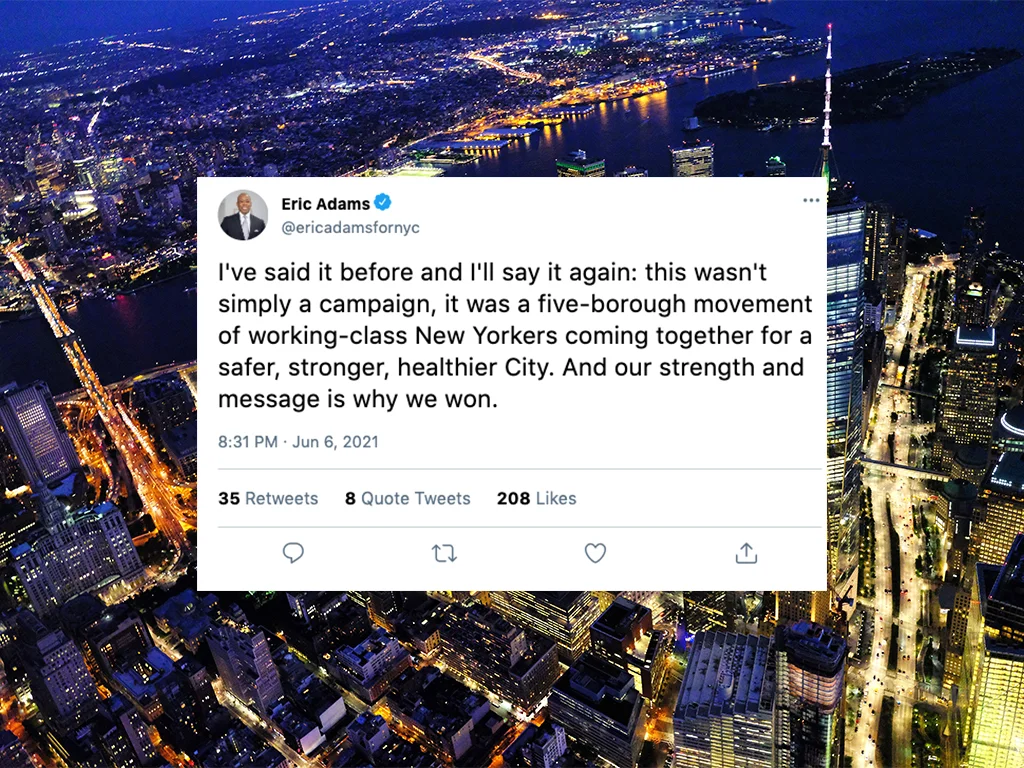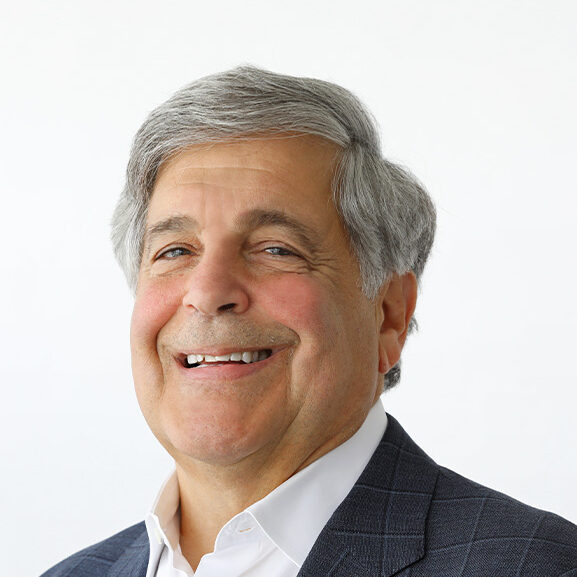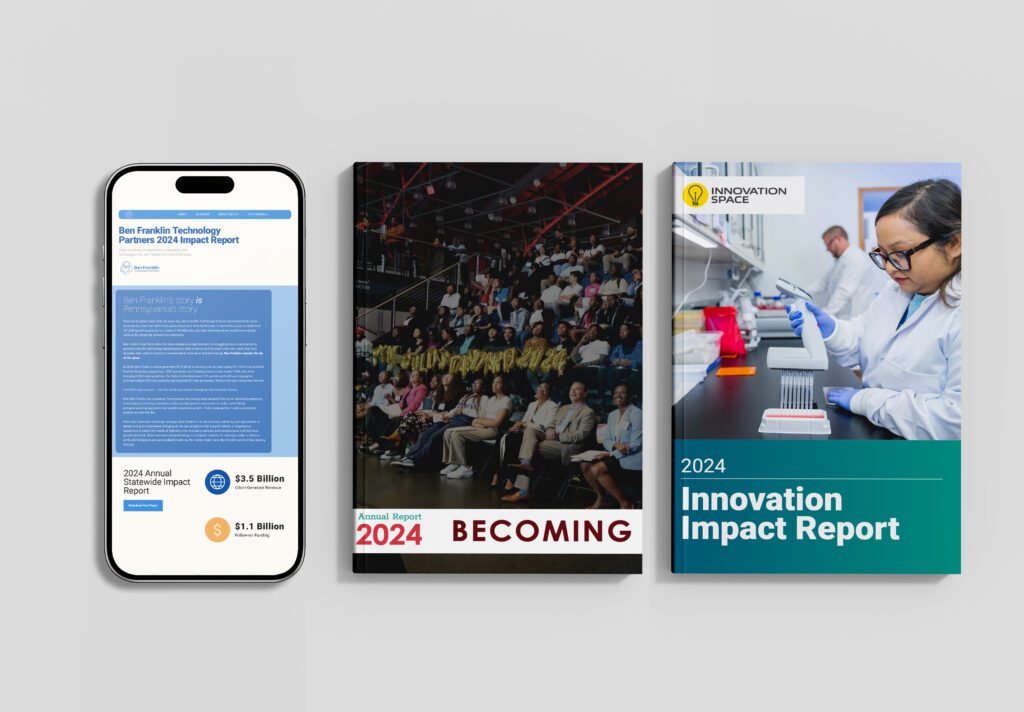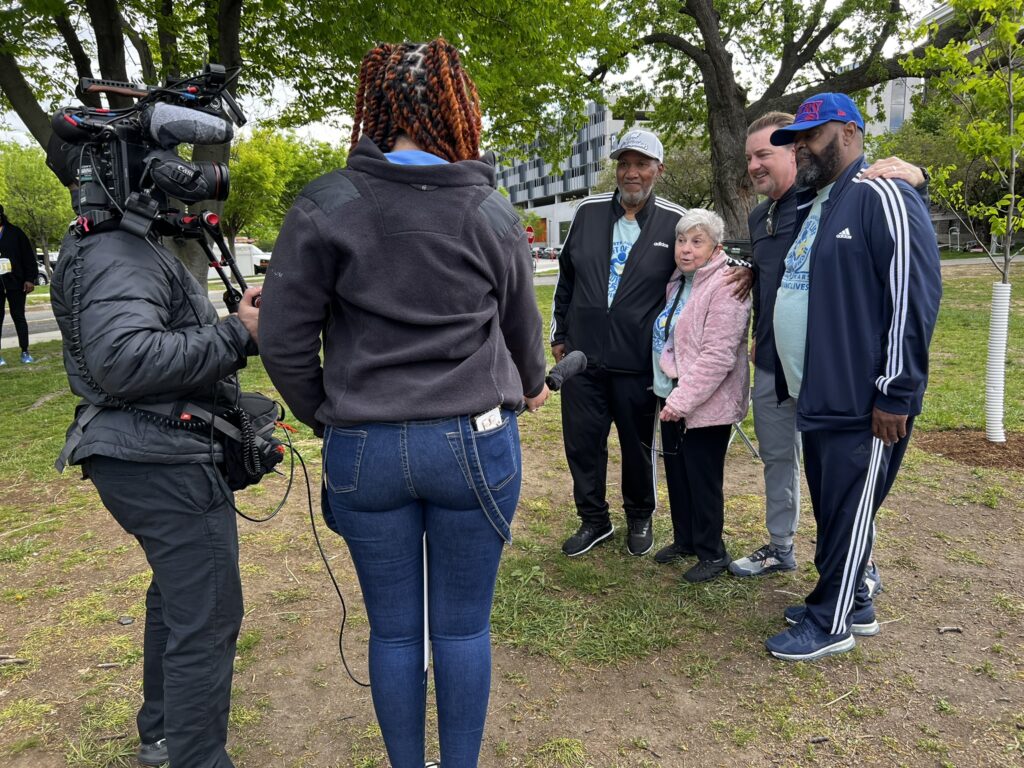New York City’s mayoral race turned not on grand policies, but on the day-to-day problems of urban America. Here, our Founder explains how that might foreshadow the next campaign in Philadelphia.

Q: When the race began for the next mayor of New York, experts expected the top issue would be setting the post-COVID course for the city. That didn’t turn out to the case, did it?
LC: It didn’t. The campaign was about the bread-and-butter issues of urban America – crime, trash pickup, the day-to-day problems of living in the big city. It wasn’t about social justice or income equality. It was about the micro issues, not the macro issues.
Q: Did Eric Adams’ background as a New York City police captain help him?
LC: There has been a spike in crime in all American cities, New York included, and the people most impacted are lower- and middle-income households. Adams talking about crime from a background of law enforcement resonated. He ran on making people’s day-to-day life better. It’s no coincidence that the person who finished second was the former sanitation commissioner (Kathryn Garcia). Who ever heard of a sanitation commissioner almost winning a mayoral race? Meanwhile, the candidates who talked about using city government for societal change – Andrew Yang and Maya Wiley – finished way behind.
Q: So, in simplest terms, the race came down to public services?
LC: Basically, Adams believes if people feel safe on the streets, in their homes and in the subways that will lift people in all facets of society. And he believes economic empowerment begins with people feeling safe enough that they want to work and live in New York. His basic theory is you cannot make societal change without the people and entities that pay the taxes. And they do not mind paying taxes, but they want to feel safe. That’s how he believes the city gets to a better place.
Q: What does this foreshadow for other big cities, including Philadelphia?

Adams also talked a lot about the less-than-welcoming environment in New York for attracting and retaining businesses. He looks at running a city efficiently for all as a puzzle where everyone has a piece to make it a better place. And that’s a challenge we here share with them.
Q: On a larger scale, what does this say to the progressive wing of the Democratic Party, people like Bernie Sanders, Elizabeth Warren and Alexandria Ocasio-Cortez?
LC: It shows that their endorsements in municipal elections don’t mean as much as they may think. On elections with national issues, it means something. But it’s another thing in a local election. For AOC, this is really the first big loss she’s had. She put her seal of approval on Maya Wiley, and Wiley got whacked.
Q: New York City mayors have often become national political figures. Do you expect the same for Eric Adams?
LC: That’s up to him. Some say that being mayor of New York is the second toughest job in America. But if he wants to have a national profile, he can do it. Certainly, he grasps the significance of his victory in the context of the national Democratic message. He is warning Democrats if they do not emphasize addressing the crime issue and other aligned messages, they will suffer in 2022.
Q: This was the largest election to date that has used ranked-choice voting. What are your thoughts on that?
LC: I love it. When you’ve been through elections as I have in Philadelphia and see someone win with 25 percent, you really see the value of this system. It’s a good way to bring consensus and eliminate the extremists and the freaks. I wish we would adopt it in Philadelphia.
Q: Do you envision that happening?
LC: There’s legislation for it, but the State General Assembly has to approve it. The thing is, it could be better for the Republicans, because a more conservative candidate could run well in the Democratic primary. If it was up to me we’d have open primaries or voters can participate in either Primary. But I think it would work really well in Philadelphia.
Q: Have you discussed this with potential candidates?
LC: I was talking to a person who wants to run for mayor of Philadelphia, and I told this person, ‘You should be for ranked choice voting.’ And the person asked me, ‘Why?’
And I said, ‘Because you would be everybody’s second choice.’

Larry Ceisler is the Founder of Ceisler Media



